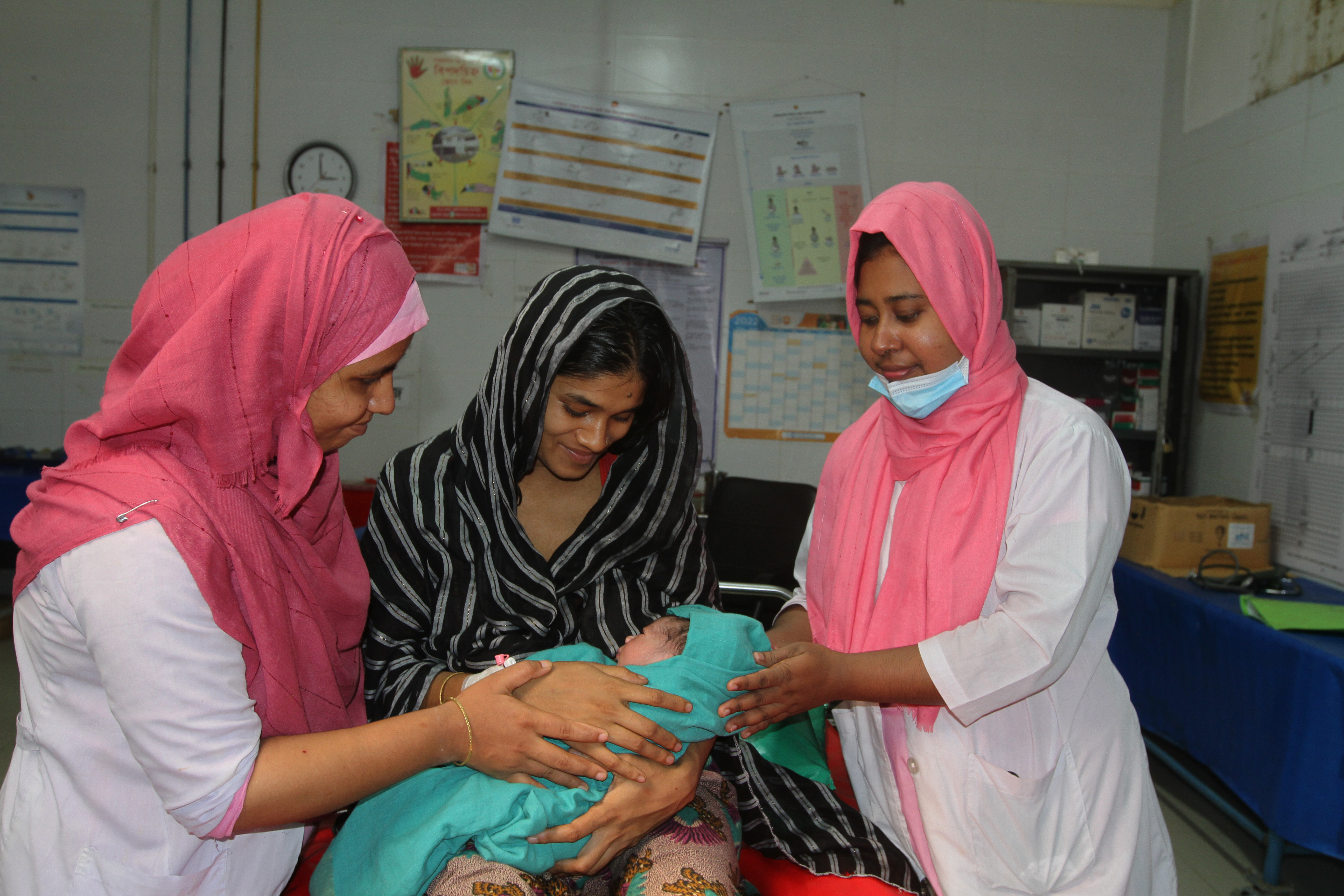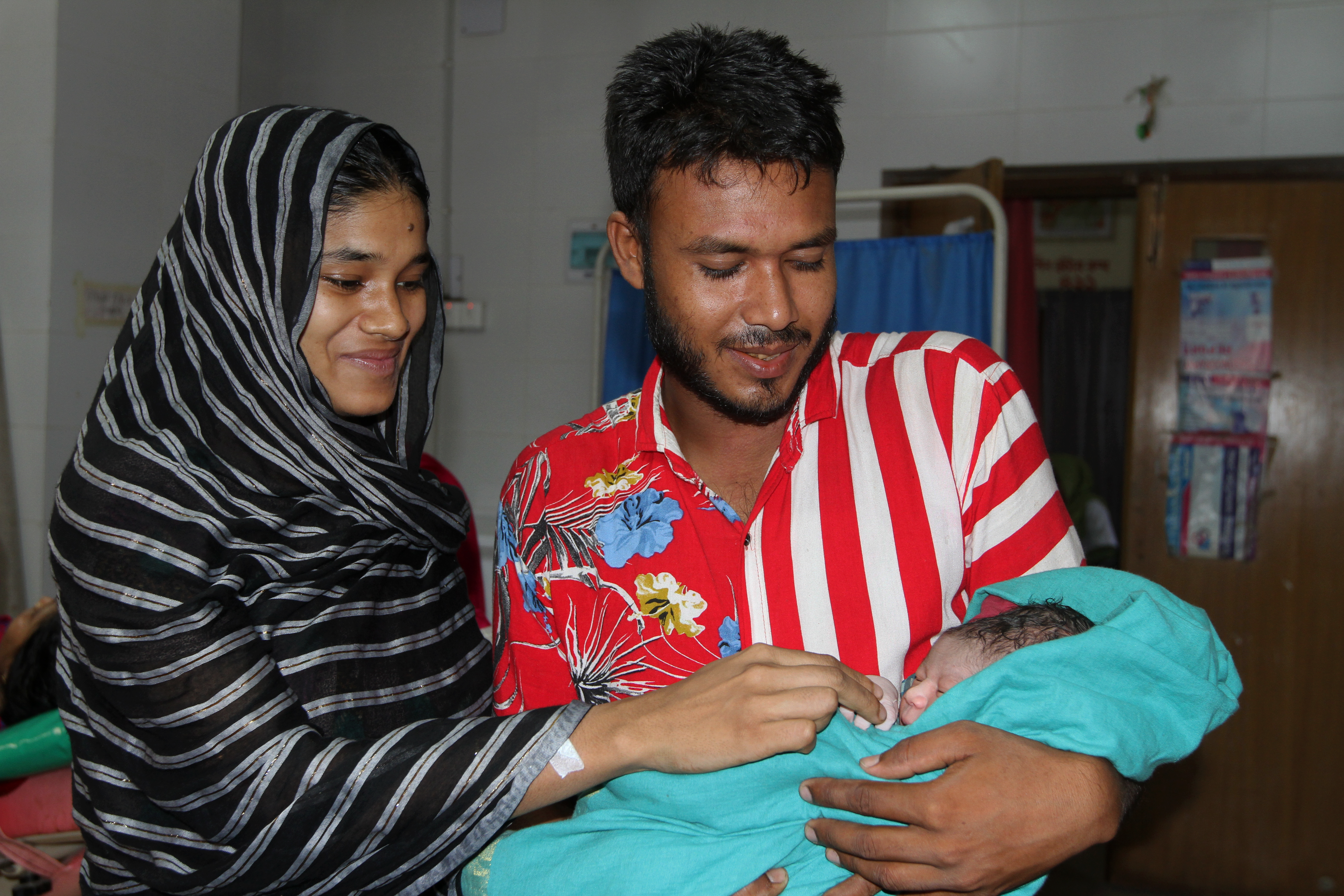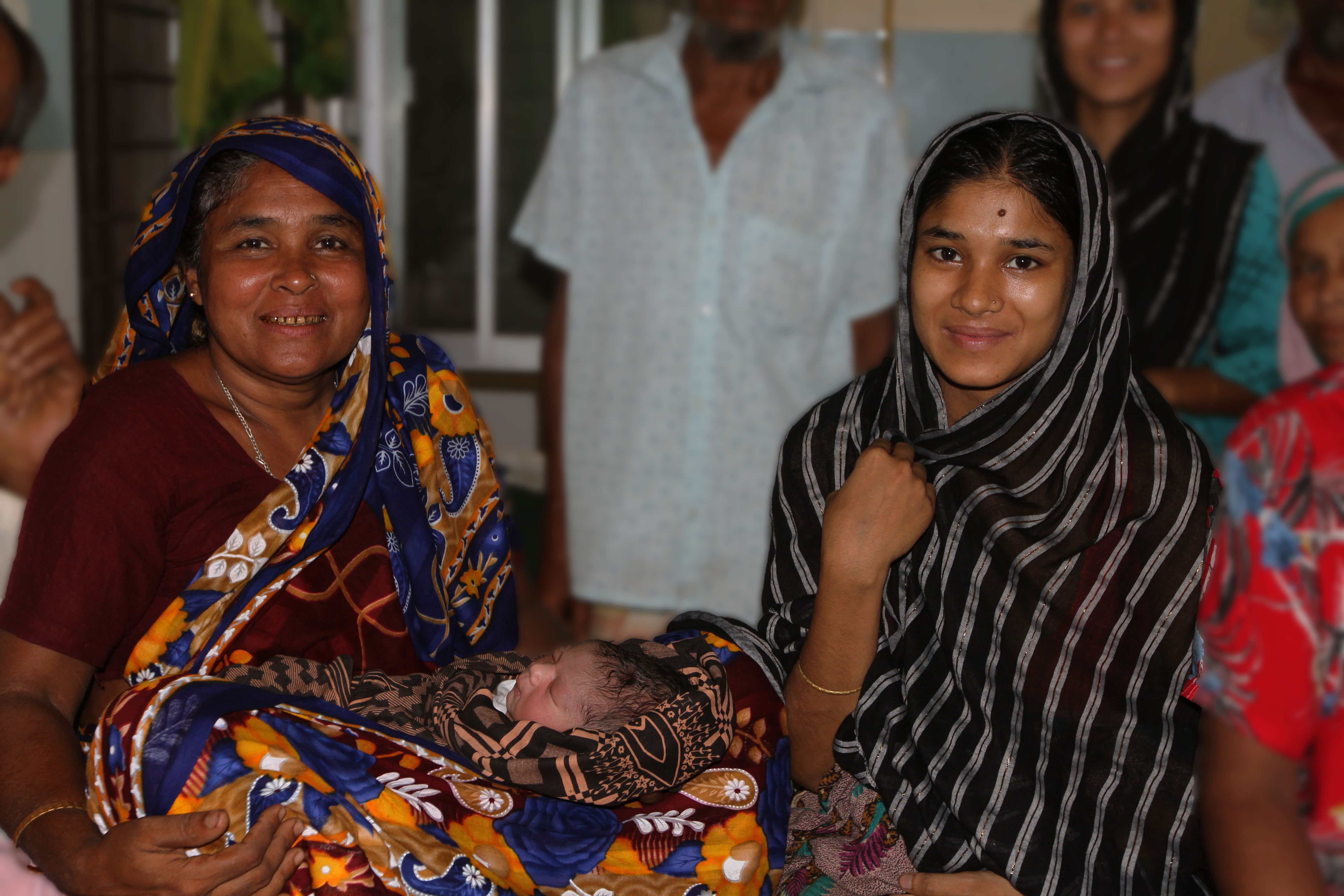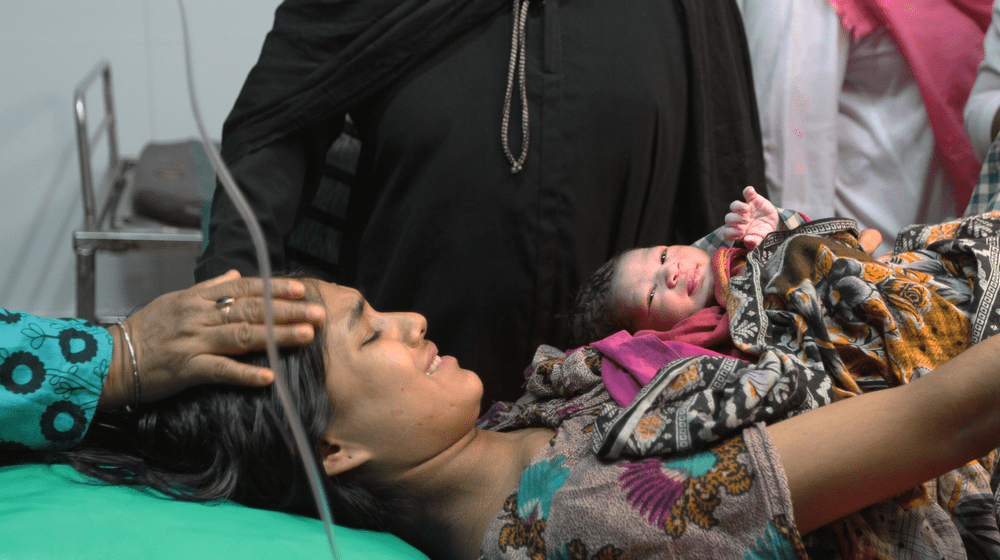“If I had come to the hospital any later, there would have been a serious risk of me or the baby dying.”
This is is the first thought in the mind of 18-year-old Sujiya Akther Purni as she holds her healthy newborn son in the delivery room of Sardar Upazila Health Complex in Sunamganj District. It’s been about 24 hours since Sujiya began experiencing labour pains in her home village of Majiya, which was badly affected by the floods that devastated north-east Bangladesh in late June of this year.
“Even a month after the floods, the water is still up to our knees in our house. There is no electricity and you have to use a boat to go anywhere. I started experiencing labour pains last evening, but because it is so dark at night, the dai (traditional birth attendant used in villages across Bangladesh) could only come to support me this morning,” Sujiya explains.
The delivery did not go as expected. Finding herself unable to complete the delivery, the dai had referred Sujiya to the Sardar Upazila Health Complex for emergency obstetric care. Transporting Sujiya to the hospital was easier said than done.
“My father and husband had to look for a boat for an hour and a half. Then it took another hour and a half for me to get here, during which my condition worsened. I am very fortunate that my son and I survived this experience with the help of the midwives here,” Sujiya says with a sigh.
As a woman from a remote village, coming to the hospital was an eye-opening experience for Sujiya: “I had not even heard that there was this profession called a midwife. I did not know facilities like this existed for deliveries. In our community, everyone uses a dai.”

Prior to being referred to the hospital, Sujiya had never heard of midwives before. Photo: UNFPA Bangladesh/Alka Ferdous
It is estimated that there are 60,000 pregnant women in the regions affected by this year’s floods. Lack of access to adequate nutrition, clean water and hygiene management poses a severe threat to their health and security. Even Sujiya’s last month leading up to the delivery was full of challenges that made her extremely worried for her child.
“In the first three days of the floods, the water level was so high that my whole family of 10 people and our 5 cows had to stay on beds we had pulled together in our house. As a pregnant woman, I felt very embarrassed, because I did not have a proper toilet or washroom to go to. I needed to manage everything on that bed,” she recounts.
Drinking water and food, however, were the biggest concerns. “We had no other option but to drink the flood water. Because the water in our house was dirty from the cows pooping in it, one of us would go and pick up the water from outside, where it looked a bit cleaner. We would try filter the water through a cloth, but we all still got sick from it. I was so worried, because it was just a month until my delivery,” she recounts.
For food, Sujiya’s family depended on rice grains stored at the house. “Because our clay stove was washed away with the flood, we tried to cook it by mixing hay and soil under a pot and lighting it on fire. Even though I was pregnant, we could only eat a little bit of this in the morning and at night. When the situation got a bit better after a few days, there were still days when my husband could not go to work because of the rains and we were not able to buy enough food,” she continues.

Sujiya's family depended on the income of her carpenter husband throughout the floods. Photo: UNFPA Bangladesh/Alka Ferdous
To ensure that mothers are able to adequately provide for their newborns in such circumstances, UNFPA is giving cash vouchers to all pregnant women who come to local health facilities for their deliveries. Since the beginning of the floods, UNFPA-supported midwives have performed over 1,000 deliveries in just Sylhet and Sunamganj Districts.
Furthermore, to improve access and demand for safe deliveries, UNFPA is working on strengthening local referral mechanisms to smoothly transport women from their communities or emergency shelters to the health facilities.
After her satisfying experience at the Sardar Upazila Health Complex, Sujiya also pledges to do her part in raising awareness of the services provided by midwives. “I was very touched by how affectionate and attentive the midwives were. I will definitely encourage all pregnant women in my community to come here for their delivery in the future,” she says with a smile on her face.
The photo and contents were collected and published with consent from the interviewee



